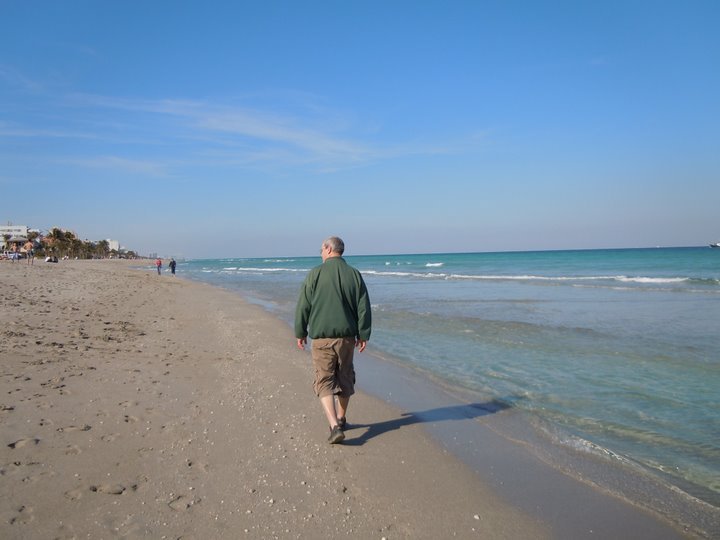
A nugget of Big Medicine every day. #46 Make a real difference
Okay, here’s the deal. If you’re looking to add EMS to your department’s portfolio of services simply as a means of padding sagging fire response statistics, building an argument for increased funding, and, as a distant afterthought, providing service to your community then don’t bother reading any further because I am certain to provoke a hypertensive crisis.
Scares the crap out of me when I hear a union leader or municipal politician telling anyone who will listen he doesn’t want firefighter/first responders to be out there on the street pretending they’re ambulance officers. Makes me want to scream when I hear a fire chief say he only wants his “boys” responding to calls for patients who are unconscious and/or in cardiac arrest—so they can make “a real difference.”
Makes me want to introduce them all to John Berryman. Lock them all in the crew cab of a 1982 American Lafrance engine for a while and see who comes out with principles intact. My money would be on Captain John.
John Berryman taught me the single most important lesson I have learned in more than two decades of emergency service: you’ve got to give a damn if you’re going to get anything worthwhile accomplished in this biz. If the blood coursing through your veins is only lukewarm then you might as well call the whole thing off.
Berryman was the Baltimore County Fire Department’s poster-boy for the concept of top-down loyalty. If you were one of his firefighter/medics (he’s retired now if you were thinking of requesting a transfer) he’d go to the metaphysical wall and beyond for you. He didn’t believe there was any room for compromise in providing EMS and firefighting services—either you’re trying to save lives or you’re not (or—in typical Berrymanese—“you gotta go balls to the wall”).
I was one of Berryman’s medic/firefighters. I mean, I was a member of the department, but I belonged to his team. He believed so we believed. In ourselves, in each other, in anything he told us we could do. He demanded we buy into his view that putting on a fire service uniform was a true privilege we should be thankful for each and every day. He reminded us of the tradition, the cultural history, the men and women who had gone before us. Berryman was the kind of leader who inspired greatness among the grunts because in his heart he still identified himself as being a member of our ranks.
Berryman’s almost fanatical pursuit of excellence extended to every aspect of the fire service, including EMS. The ambulance in our station wasn’t just some statistic building throwaway “gut bucket” to be trotted out for select calls. Berryman demanded the same attention to detail, the same response to the community’s every need, the same ability to stay on the leading edge of technology and education he expected of the folks who worked exclusively on the engine, truck, and squad.
With more than 10 years of experience as a medic, my days under Berryman’s tutelage began aboard an ambulance. Although he wasn’t a medic himself, Captain John had long ago figured out a way to bridge the vast distances between firefighters and medics. He convinced each of us we were playing for the same team and then he ensured each one of us had an important role to play. I remember thinking at the time that he would have been a fabulous hockey coach.
It wasn’t until after I moved back to Montreal before I realized John Berryman was already a fairly serious coach. He knew if he consoled us when we lost a patient, cheered us when we managed to save a life, encouraged us when we did something to make a difference, and generally appreciated genuine effort we would reward him by playing harder for the team.
Berryman encouraged us to become the best medic/firefighters we could be. I remember him telling me not to worry about whose sensibilities we might offend by staking a claim to the top end of the ladder. If folks felt threatened by our performance in the field, well then, more power to us. His theory was that we owed our absolute all to the communities we served.
Be well. Practice big medicine.
Hal
There’s a postscript to this episode provided by Captain John Berryman’s son, Mike with whom I had the great privilege of serving as a firefighter in Baltimore County. ” At one of his stations three guys held off retiring so they could work for him longer. There is no greater honor than the respect of your peers. We were lucky to be groomed by someone with passion for this noble calling.” Indeed.
NB: Big Medicine is my nod of respect to a First Nations expression that, roughly translated, means the right people working together at the right time will be Big Medicine. I’ve been saying ‘Be well. Practice big medicine’ for as long as I can remember. It is my own very personal version of ‘Sawu Bona’, the Zulu greeting which means ‘I see you’… I see all of you, I see your good works, I see the difference you are making in the world.



